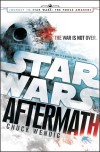The Name of the Rose
 This book took me longer than expected to finish. It's a heavier book than I normally read, which certainly contributed some, but it's not so heavy that it's unreadable, or incomprehensible. No, what really caused the delay was me downloading You Must Build a Boat to my device and spending nearly every waking hour for over a week playing that stupid game. I probably could have finished this book in a week, otherwise.
This book took me longer than expected to finish. It's a heavier book than I normally read, which certainly contributed some, but it's not so heavy that it's unreadable, or incomprehensible. No, what really caused the delay was me downloading You Must Build a Boat to my device and spending nearly every waking hour for over a week playing that stupid game. I probably could have finished this book in a week, otherwise.I've read one other Eco book, Foucault's Pendulum, close to twenty years ago. It wasn't an easy book. As I recall, I thought the story was intriguing, but the philosophy bogged me down. I also remember that there was a pivotal scene at the end of the book where one of the characters said something important. In Italian. Without a translation.
So, I get it -- Eco knows lots of stuff, and he wants to make sure you know that about him. The Name of the Rose is another book like that, with more time devoted to discussing history and philosophy than to the story itself. I hate to come across as anti-intellectual, but when it comes to my fiction, I prefer for the story, not the philosophy, to take center stage. When the philosophy services the story, that's great, but when it's the other way around, I wind up feeling like I have to slog through pages and pages of philosophy before I find the next nugget of story.
The thing is, to take the history and philosophy out of the book would be to remove its context, as well. So much of the story is anchored in its time and setting, and a story set in an abbey would be less of a story if one didn't discuss the context of the abbey, again in its time and setting. What story remains would be engaging still, but it wouldn't be as relevant. Look at the movie adaptation of the book to see what the story would be without the context.
For what it's worth, the story here is really good. Brother William of Baskerville, a Franciscan monk, is accompanied by his scribe, Adso of Melk, to investigate a death at an abbey. Brother William is a Sherlock Holmes-ian character, perceptive and wise and thoughtful, and how he investigates the death is intriguing and interesting. The story is one of politics, history, intrigue, and mystery, complete with questionable characters, red herrings, and a satisfying conclusion.
The construct of the story is significant, too, as the story itself is three layers deep: the book has a foreword written by a scholar that suggests this book is a found manuscript written by Adso; the prologue is narrated by Adso himself, suggesting that the story to follow is one written many years after the events of the story; and then there is the story itself, again narrated by Adso. By the end of the story, years have passed, and it's difficult to know if Adso is a reliable narrator. Eco doesn't present him as such, and monks were known for their prodigious memories, but how accurately can someone remember events from so many years ago?
Overall, I enjoyed the story, though I got bogged down with the history and philosophy Eco included. It's hard to say who the audience for the book is; the mystery is intriguing, but it has so much other discussion in the novel that it seems like it's geared toward religious scholars. Still, casual readers might enjoy it as much as I did, but I wouldn't recommend it without reservation.






